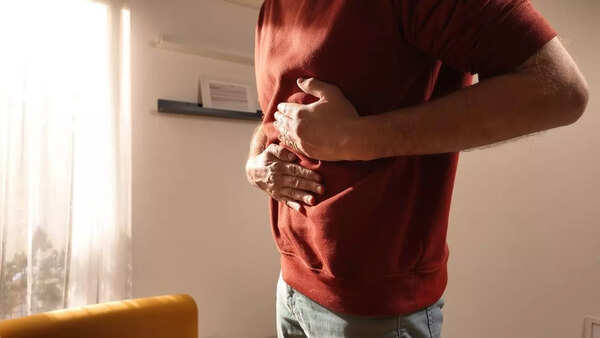Fatty liver disease, particularly Non-Alcoholic Fatty Liver Disease (NAFLD), is a growing health concern, affecting an estimated 30.2% of the world’s population. Prevalence varies by region, with rates above 40% in the Americas and Southeast Asia.
What is Non-Alcoholic Fatty Liver Disease (NAFLD)?
Non-alcoholic fatty liver disease (NAFLD) is a condition where excess fat builds up in the liver, not caused by heavy alcohol consumption. It’s often linked to obesity, type 2 diabetes, and metabolic syndrome. NAFLD encompasses a spectrum of conditions, from simple fat buildup (NAFL) to more serious inflammation and scarring (NASH).Often termed the “silent epidemic,” NAFLD can progress to more severe conditions like cirrhosis if left unchecked. While many symptoms manifest during the day, certain warning signs become more pronounced at night.Recognizing these nocturnal symptoms is crucial for early detection and management.

Excessive night sweats
One of the alarming nighttime symptoms of fatty liver disease is excessive sweating during sleep. Individuals may wake up drenched in sweat, even in a cool room. This occurs because the liver’s impaired function affects the body’s ability to regulate temperature effectively.
Persistent fatigue and weakness
Fatigue is a hallmark of fatty liver disease. However, when the liver’s detoxification processes are compromised, individuals may experience overwhelming tiredness during the night. This isn’t just typical tiredness; it’s an overpowering fatigue that can interfere with daily life.
Sleep disturbances and insomnia
Individuals with fatty liver disease often report difficulty falling or staying asleep. The discomfort from liver inflammation or the body’s struggle to process toxins can lead to restless nights. Moreover, the liver’s reduced ability to store and release glycogen can cause blood sugar imbalances, further disrupting sleep patterns.
Abdominal discomfort intensifying at night
A common symptom of fatty liver disease is discomfort in the upper right abdomen. This sensation can worsen at night, making it hard to get a good night’s sleep. People may feel a sense of fullness or pressure, which can be quite concerning.
Loss of appetite during evening meals
A decrease in appetite, particularly at night, may signify fatty liver disease. Individuals may find they have less interest in food, especially during dinner, which could eventually lead to weight loss and nutritional problems.
Increased brain fog and mental fatigue
As fatty liver disease progresses, the accumulation of toxins in the bloodstream can affect brain function. This may lead to symptoms like confusion, poor memory, or trouble focusing, commonly referred to as “brain fog.” These cognitive disturbances can be more noticeable during the evening or night when the body is at rest.
Swelling in the legs and feet
While swelling can occur at any time, it may become more noticeable at night. Fluid retention due to liver dysfunction can lead to swelling in the legs and feet, causing discomfort and affecting sleep quality.
Itchy skin
Fatty liver disease can cause itchy skin, especially if liver damage affects bile flow. When bile salts build up under the skin, it can cause irritation and itching, even if there is no visible rash.
Unexplained weight loss
Unexplained weight loss can be an early indicator of fatty liver disease. The liver’s involvement in various metabolic processes, including the regulation of body weight, can be disrupted, leading to unintended weight loss.
Yellowing of the skin or eyes (Jaundice)
In more advanced stages of fatty liver disease, jaundice can develop. This condition causes the skin and the whites of the eyes to turn yellow due to elevated levels of bilirubin, a waste product from red blood cells. Jaundice is a serious sign and should be checked by a doctor immediately.While adopting a healthy lifestyle – which consists of a balanced diet, regular exercise, checking alcohol consumption and smoking, and having adequate sleep – can significantly elevate liver health, if you experience any of the above symptoms, especially during the night, it’s essential to consult a healthcare professional. Early detection through blood tests and imaging can help manage and potentially reverse the effects of fatty liver disease.






